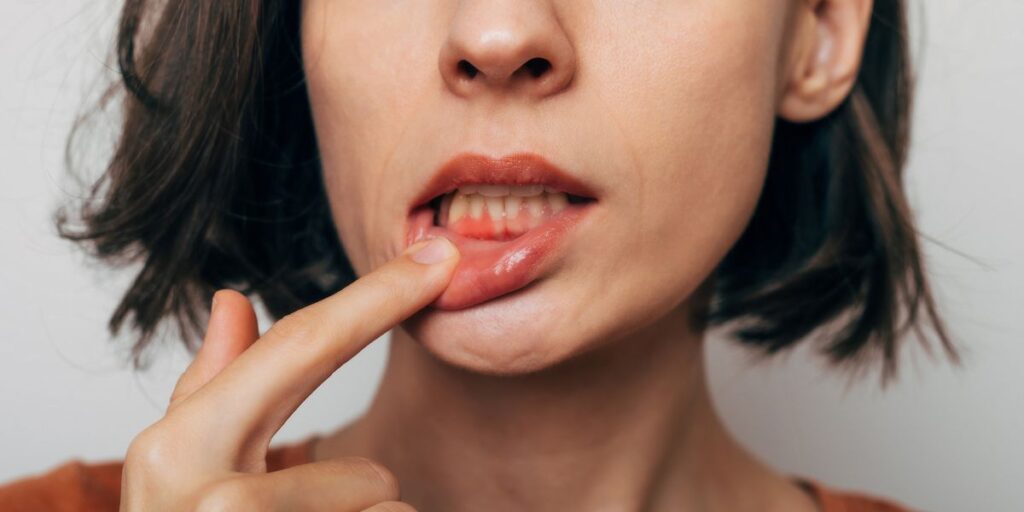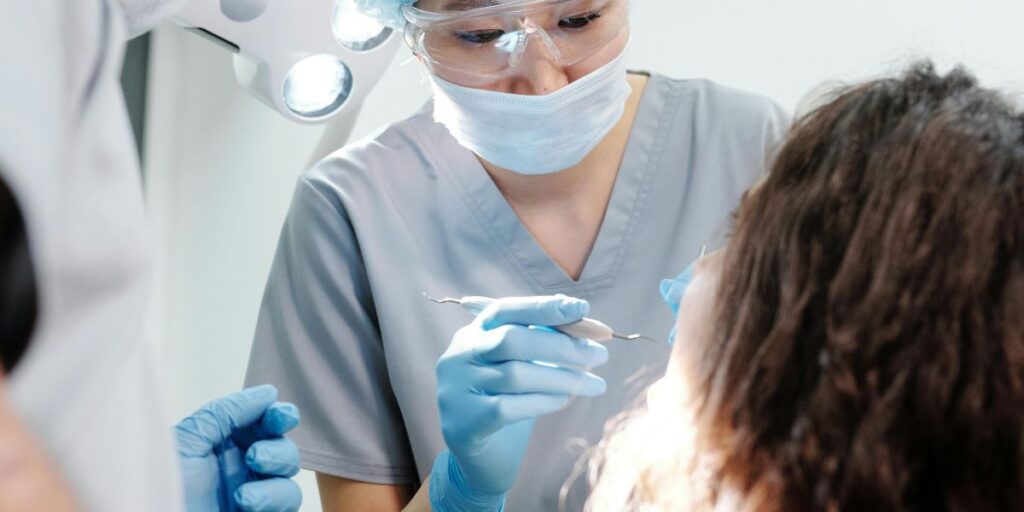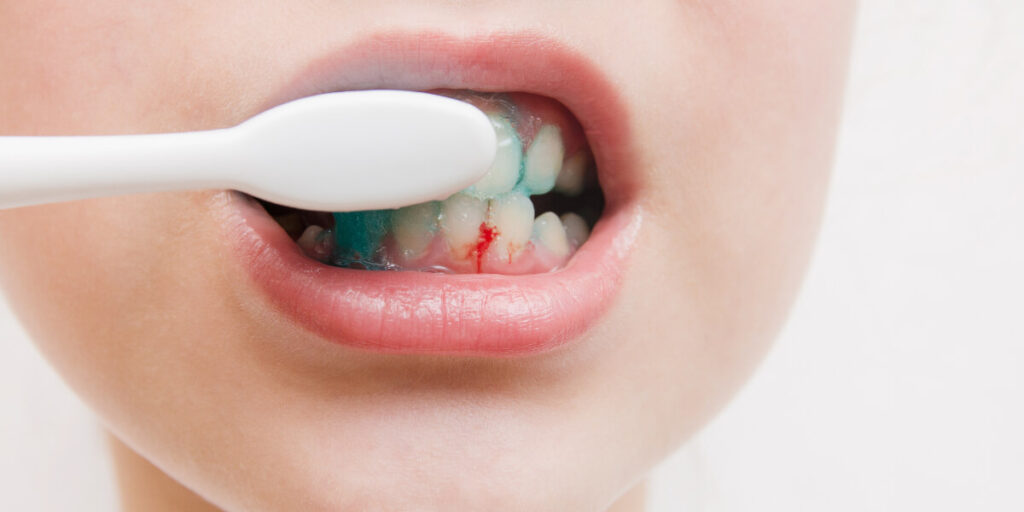There are many reasons why your gums might bleed, and it isn’t always tied to a single condition. Sometimes it can be as simple as brushing too hard, while in other cases it may point to issues like gingivitis, gum disease, or even vitamin deficiencies.
Brushing your teeth is supposed to keep your mouth healthy and your smile bright, but noticing blood on your toothbrush or in the sink can be alarming and confusing. Bleeding gums are actually very common, and while sometimes it’s harmless, it can also be an early sign of gum disease, vitamin deficiencies, or other underlying health issues.
Ignoring it can make problems worse over time. The good news is that with proper dental cleaning in Oakville, consistent oral hygiene, and a clear understanding of the cause, you can stop the bleeding, strengthen your gums, and protect your smile. So, in this blog, let’s explore the causes of bleeding gums and what steps you can take to protect them.
Table of Contents
ToggleCommon Causes of Bleeding Gums
- Gingivitis: The earliest stage of gum disease. Plaque buildup along the gumline irritates tissues, causing redness, swelling, and bleeding.
- Brushing too hard: Using too much pressure or a hard-bristled brush can damage delicate gum tissue.
- Hormonal Changes: Hormones fluctuate during pregnancy, menstruation, puberty, or menopause. These changes can increase blood flow to the gum tissue, making the gums more sensitive and prone to bleeding.
- Poor Flossing Routine or New Flossing Habit: If you just started flossing (or returning after a break), your gums may bleed until they get used to the motion. Incorrect flossing technique (snapping the floss, pushing it hard) can also cause small injuries.
- Poor oral hygiene: Skipping brushing or not cleaning between teeth allows plaque and bacteria to spread.
- Medications: Blood thinners and certain other medications may increase bleeding risk, including during brushing. Always let your dentist know what medications you take.
- Vitamin deficiencies: A lack of vitamin C or vitamin K can affect gum health.
Understanding the bleeding gums causes helps you take the right next step, whether that’s improving home care or seeing a dentist in Oakville for a closer look.
When to Worry About Bleeding Gums

- Gums bleed often, even with gentle brushing/flossing.
- Bleeding is heavy or lasts more than a few days after adjusting brushing/flossing.
- Gums are red, swollen, tender, or receding, or you notice bad breath that doesn’t go away.
- You notice loose teeth or spaces forming between teeth/gums.
- You have health conditions (e.g., diabetes) or are on medications that affect healing.
How to Prevent and Treat Bleeding Gums at Home
- Switch your toothbrush – Use a soft-bristled brush and gentle circular motions instead of scrubbing hard.
- Improve your routine – Brush twice daily and floss once a day. Consistency matters more than force.
- Rinse with care – Antimicrobial mouthwash can reduce bacteria and inflammation.
- Stay healthy overall – Eating a balanced diet and staying hydrated supports gum health.
- Check your habits – Smoking weakens gums and slows healing, so cutting back can help.
The Role of Your Dentist
An Oakville dentist can do more than just treat bleeding gums. They can identify the exact cause, check for underlying issues, and design a plan customized to you. Sometimes what looks like gum disease is actually linked to other health conditions like diabetes or medication side effects. That’s why professional diagnosis is so valuable; you’ll know what’s really happening and how to address it safely.
Regular checkups every six months mean problems get caught early, before they become painful or costly. Think of your dentist as your partner in long-term oral health.
How Dentists Diagnose & Treat Bleeding Gums

- Exam & Medical History: They'll ask about your brushing/flossing habits, medications, diet, and any health issues.
- Measuring Gum Pockets: Using a periodontal probe, the dentist checks how deep the spaces (pockets) are between your teeth and gums; deeper pockets can mean infection.
- X-rays: To see bone levels around teeth and detect hidden damage.
- Professional Cleaning: Scaling & root planing (deep cleaning) removes plaque and tartar above and below the gumline.
- Ongoing Care Plan: This may include antibacterial mouthwashes, flossing instructions, follow-ups, and possible specialist referral if the disease has advanced.
Why You Shouldn't Ignore Bleeding Gums
It might be tempting to brush off a little blood as “no big deal,” but gums are your foundation. Healthy gums keep your teeth strong, your smile confident, and your mouth pain-free. Ignoring ongoing bleeding risks, infection, tooth loss, and even links to whole-body health issues like heart disease.
By paying attention early and seeking advice, you can prevent major problems later.

